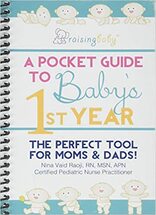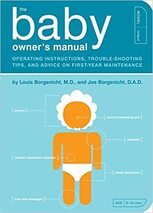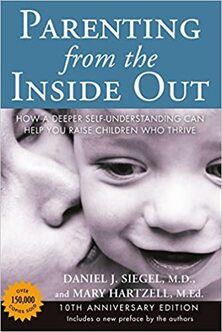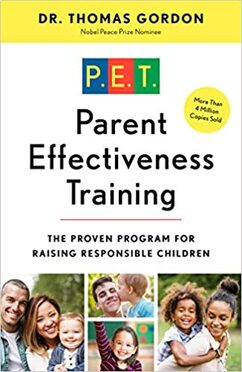The 5 Conditions Necessary for Raising a Secure Child
The secure attachment style is the most common attachment style. People who have developed this type of attachment are self-contented, social, warm, and easy to connect to. They are aware of and able to express their feelings. They tend to build deep, meaningful, and long-lasting relationships. Parents who want to raise securely attached children might benefit from researching the topic and resolving their own attachment disturbances, if such exist. Take attachment quiz.
The secure attachment style is the most common attachment style. People who have developed this type of attachment are self-contented, social, warm, and easy to connect to. They are aware of and able to express their feelings. They tend to build deep, meaningful, and long-lasting relationships. Parents who want to raise securely attached children might benefit from researching the topic and resolving their own attachment disturbances, if such exist. Take attachment quiz.
The 20 Best Parenting Books Worth Your Money in 2020
From taming tantrums to debunking old wives' tales, these books have got your back.
From taming tantrums to debunking old wives' tales, these books have got your back.
The Best Parenting Books to Help You Raise Your Child
Don’t know the answers to your parenting questions? Stock your shelves with our list of best parenting books for quick and handy go-to guides.
Don’t know the answers to your parenting questions? Stock your shelves with our list of best parenting books for quick and handy go-to guides.
First time parents

With over 11 million copies in print, What to Expect: The First Year, now in a completely revised third edition, is the world’s best-selling, best-loved guide to the instructions that babies don’t come with, but should. And now, it’s better than ever. Every parent’s must-have/go-to is completely updated.
Keeping the trademark month-by-month format that allows parents to take the potentially overwhelming first year one step at a time, First Year is easier-to-read, faster-to-flip-through, and new-family-friendlier than ever—packed with even more practical tips, realistic advice, and relatable, accessible information than before. Illustrations are new, too.
Among the changes: Baby care fundamentals—crib and sleep safety, feeding, vitamin supplements—are revised to reflect the most recent guidelines. Breastfeeding gets more coverage, too, from getting started to keeping it going. Hot-button topics and trends are tackled: attachment parenting, sleep training, early potty learning (elimination communication), baby-led weaning, and green parenting (from cloth diapers to non-toxic furniture). An all-new chapter on buying for baby helps parents navigate through today’s dizzying gamut of baby products, nursery items, and gear. Also new: tips on preparing homemade baby food, the latest recommendations on starting solids, research on the impact of screen time (TVs, tablets, apps, computers), and “For Parents” boxes that focus on mom’s and dad’s needs. Throughout, topics are organized more intuitively than ever, for the best user experience possible.
Keeping the trademark month-by-month format that allows parents to take the potentially overwhelming first year one step at a time, First Year is easier-to-read, faster-to-flip-through, and new-family-friendlier than ever—packed with even more practical tips, realistic advice, and relatable, accessible information than before. Illustrations are new, too.
Among the changes: Baby care fundamentals—crib and sleep safety, feeding, vitamin supplements—are revised to reflect the most recent guidelines. Breastfeeding gets more coverage, too, from getting started to keeping it going. Hot-button topics and trends are tackled: attachment parenting, sleep training, early potty learning (elimination communication), baby-led weaning, and green parenting (from cloth diapers to non-toxic furniture). An all-new chapter on buying for baby helps parents navigate through today’s dizzying gamut of baby products, nursery items, and gear. Also new: tips on preparing homemade baby food, the latest recommendations on starting solids, research on the impact of screen time (TVs, tablets, apps, computers), and “For Parents” boxes that focus on mom’s and dad’s needs. Throughout, topics are organized more intuitively than ever, for the best user experience possible.

Raising Baby: A Pocket Guide to Baby's 1st Year, is a first of its' kind, 80 page, spiral bound pocket guide for parents, caregivers, nannies, grandparents, etc. to help them navigate their baby's development, nutrition, sleep and health visits through the first year. It is full of information and tips and has numerous charts, sample schedules and tables to help parents get started. Raising Baby is all about simplifying the baby years and making it an enjoyable and memorable experience.

Best-selling author Dawn Dais, mother of two tiny terrors, is convinced that there is a reason for this lack of preparedness. She believes that a vast conspiracy exists to hide the horrific truth about parenting from doe-eyed expectant mothers who might otherwise abandon their babies in hospitals and run for it. Eschewing the adorableness that oozes out of other parenting books, Dais offers real advice from real moms-along with hilarious anecdotes, clever tips, and the genuine encouragement every mom needs in order to survive the first year of parenthood. The Sh!t No One Tells You is a must-have companion for every new mother's sleepless nights and poop-filled days.

Through step-by-step instructions and helpful schematic diagrams, The Baby Owner's Manual explores hundreds of frequently asked questions: What's the best way to swaddle a baby? How can I make my newborn sleep through the night? When should I bring the baby to a doctor for servicing? Whatever your concerns, you'll find the answers here—courtesy of celebrated pediatrician Dr. Louis Borgenicht and his son, Joe Borgenicht. Together, they provide plenty of useful advice for anyone who wants to learn the basics of childcare.

Cry it out or co-sleep? Bassinet or swing? White noise machine or Bach? How many hours anyway? For something so important, there's too much conflicting information about how best to get your baby to sleep through the night and nap successfully during the day. This book is a straightforward, no-nonsense answer to one of the biggest challenges new parents face when they welcome a brand new baby home. This book is written for exhausted parents, giving them immediate access to the information they need. Reassuring and easy to understand, Dr. Kennedy addresses head-on the fears and misinformation about the long-term effects of crying and takes a bold stand on controversial issues such as co-sleeping and attachment parenting. With polarizing figures and techniques dominating the marketplace―and spawning misinformation across the internet―Dr. Kennedy's methods and practices create an extensively researched and parent-tested approach to sleep training that takes both babies' and parents' needs into account to deliver good nights and days of sleep, and no small dose of peace of mind.
The Good Sleeper is a practical, empowering―and even entertaining―guide to help parents understand infant sleep. This research-based book will teach parents the basics of sleep science, determine how and when to intervene, and provide tools to solve even the most seemingly impossible sleep problems.
The Good Sleeper is a practical, empowering―and even entertaining―guide to help parents understand infant sleep. This research-based book will teach parents the basics of sleep science, determine how and when to intervene, and provide tools to solve even the most seemingly impossible sleep problems.

This newest edition of Penelope Leach’s much-loved, trusted, and comprehensive classic—an international best seller for twenty-five years, with nearly two million copies sold in America alone—encompasses the latest research and thinking on child development and learning, and reflects the realities of today’s changing lifestyles.
In her authoritative and practical style, Leach responds fully to parents’ every concern about the psychological, emotional, and physical well-being of their children. She describes, in easy-to-follow stages from birth through starting school, how children develop: what they are doing, experiencing, and feeling. And she tackles both the questions parents often ask—What does a new baby’s wakefulness or a toddler’s tantrum mean?—and those that are more difficult: How should new parents time their return to work, choose day care, tell a child about a new baby or an impending divorce?
In her authoritative and practical style, Leach responds fully to parents’ every concern about the psychological, emotional, and physical well-being of their children. She describes, in easy-to-follow stages from birth through starting school, how children develop: what they are doing, experiencing, and feeling. And she tackles both the questions parents often ask—What does a new baby’s wakefulness or a toddler’s tantrum mean?—and those that are more difficult: How should new parents time their return to work, choose day care, tell a child about a new baby or an impending divorce?

In Parenting from the Inside Out, child psychiatrist Daniel J. Siegel, M.D., and early childhood expert Mary Hartzell, M.Ed., explore the extent to which our childhood experiences shape the way we parent. Drawing on stunning new findings in neurobiology and attachment research, they explain how interpersonal relationships directly impact the development of the brain, and offer parents a step-by-step approach to forming a deeper understanding of their own life stories, which will help them raise compassionate and resilient children.
Born out of a series of parents' workshops that combined Siegel's cutting-edge research on how communication impacts brain development with Hartzell's decades of experience as a child-development specialist and parent educator, this book guides parents through creating the necessary foundations for loving and secure relationships with their children.
Born out of a series of parents' workshops that combined Siegel's cutting-edge research on how communication impacts brain development with Hartzell's decades of experience as a child-development specialist and parent educator, this book guides parents through creating the necessary foundations for loving and secure relationships with their children.

The Conscious Parent
Instead of being merely the receiver of the parents' psychological and spiritual legacy, children function as ushers of the parents' development. Parents unwittingly pass on an inheritance of psychological pain and emotional shallowness. To handle the behavior that results, traditional books on parenting abound with clever techniques for control and quick fixes for dysfunction. In Dr. Shefali Tsabary's conscious approach to parenting, however, children serve as mirrors of their parents' forgotten self. Those willing to look in the mirror have an opportunity to establish a relationship with their own inner state of wholeness. Once they find their way back to their essence, parents enter into communion with their children, shifting away from the traditional parent-to-child "know it all" approach and more towards a mutual parent-with-child relationship. The pillars of the parental ego crumble as the parents awaken to the ability of their children to transport them into a state of presence.
Instead of being merely the receiver of the parents' psychological and spiritual legacy, children function as ushers of the parents' development. Parents unwittingly pass on an inheritance of psychological pain and emotional shallowness. To handle the behavior that results, traditional books on parenting abound with clever techniques for control and quick fixes for dysfunction. In Dr. Shefali Tsabary's conscious approach to parenting, however, children serve as mirrors of their parents' forgotten self. Those willing to look in the mirror have an opportunity to establish a relationship with their own inner state of wholeness. Once they find their way back to their essence, parents enter into communion with their children, shifting away from the traditional parent-to-child "know it all" approach and more towards a mutual parent-with-child relationship. The pillars of the parental ego crumble as the parents awaken to the ability of their children to transport them into a state of presence.

Parent Effectiveness Training
UPDATED 2019 EDITION • The pioneering book that’s guided millions of parents to more effectively resolve conflicts, communicate, and create loving relationships with their children—from Nobel Peace Prize nominee Dr. Thomas Gordon
P.E.T., or Parent Effectiveness Training, began in 1962 as the first national parent-training program to teach parents how to communicate more effectively with kids and offer step-by-step advice to resolve family conflicts so everybody wins. This beloved classic is the most studied, highly praised, and proven parenting program in the world—and it will work for you. Now revised and updated, this groundbreaking guide will show you:
• How to avoid being a permissive parent
• How to listen so kids will talk to you and talk so kids will listen to you
• How to teach your children to “own” their problems and to solve them
• How to apply the “No Lose” method to resolve conflicts
Using the timeless methods of P.E.T. will have immediate results: less fighting, fewer tantrums and lies, no need for punishment. Whether you have a toddler striking out for independence or a teenager who has already started rebelling, you’ll find P.E.T. a compassionate, effective way to instill responsibility and create a nurturing family environment in which your child will thrive.
UPDATED 2019 EDITION • The pioneering book that’s guided millions of parents to more effectively resolve conflicts, communicate, and create loving relationships with their children—from Nobel Peace Prize nominee Dr. Thomas Gordon
P.E.T., or Parent Effectiveness Training, began in 1962 as the first national parent-training program to teach parents how to communicate more effectively with kids and offer step-by-step advice to resolve family conflicts so everybody wins. This beloved classic is the most studied, highly praised, and proven parenting program in the world—and it will work for you. Now revised and updated, this groundbreaking guide will show you:
• How to avoid being a permissive parent
• How to listen so kids will talk to you and talk so kids will listen to you
• How to teach your children to “own” their problems and to solve them
• How to apply the “No Lose” method to resolve conflicts
Using the timeless methods of P.E.T. will have immediate results: less fighting, fewer tantrums and lies, no need for punishment. Whether you have a toddler striking out for independence or a teenager who has already started rebelling, you’ll find P.E.T. a compassionate, effective way to instill responsibility and create a nurturing family environment in which your child will thrive.